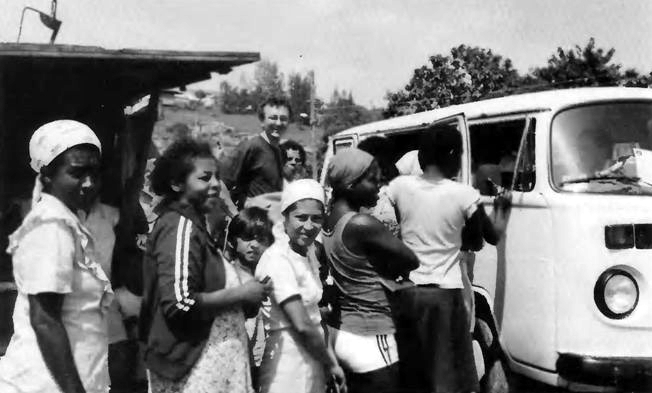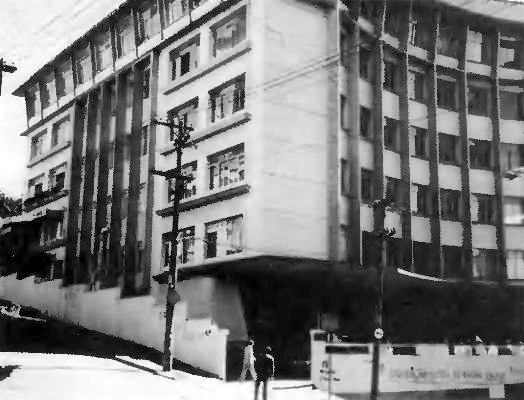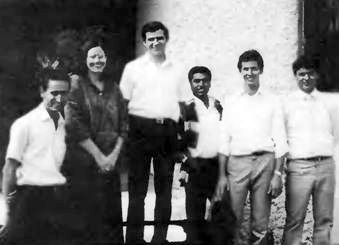![]()
The Words of the Naughton Family
|
|
The Words of the Naughton Family |

The
author (in the rear), standing in line for canned milk given by
AMASA.
Since the first missionary arrived in 1975, Brazil has been one of the most successful mission countries. At present there are leaders for each of Brazil's 26 states, 102 city leaders, 725 core members, and over 14,000 associate members.
Brazil now has its own Unification Theological Seminary. It is located in a beautiful setting just south of Sao Paulo, and was constructed entirely by the members themselves. The seminary was formally opened in 1985 by Rev. Hyung Tae Kim, the missionary who incorporated HSA-UWC in Brazil in 1975, and has 100 students. Its main purpose is to prepare members for leadership roles in the church. Courses are offered in theology, philosophy, sociology, anthropology, Unification Thought, Korean culture, and English.
After two years of study the students do one year of field work to complete their requirements. Each morning and evening the students meet to pray, plan, and share the events of the day in a family atmosphere. In addition to attending classes, students do a considerable amount of fundraising to support the facility. The seminary also doubles as a year- round workshop site.

The
new Unification Church headquarters in Sao Paulo.
The work of AMASA (an affiliate of IRFF) in Brazil centers around the favellas -- impoverished areas where squatters build makeshift huts on available land. Many favellas do not even have running water and electricity. AMASA gives assistance particularly to the poorest areas in the northwest where poverty is compounded by difficult climatic factors and lack of education. Food and clothing are distributed regularly, but the emphasis is on teaching basic morality and hygiene. AMASAs aim is actually to mobilize the upper and middle classes to help the poor. AMASA has connections with over 400 other relief organizations.
The home church work of HSA-UWC is also connected to the favellas. Strong bonds of love and trust have formed between members and families living in favellas. Housewives in other home church areas organize bazaars and fundraising activities to help the work of AMASA.

Walter
Cipriani, president of the Unification Church in Brazil (third from
the left), together with other leaders and members outside the main
seminary building.
The home church providence has grown especially through the baking and selling of bread. Rev. Hyung Tae Kim says that while it is true that man cannot live by bread alone, the members should provide real bread along with the word of God! For one week free bread was delivered in all the home church areas, after which orders were taken for regular delivery. Members rise around 5 a.m. and make their deliveries before people leave for work. Since it is fresh and free of additives, the bread is proving to be very popular indeed.
ICF in Brazil has introduced the Unification movement to many academics, professionals, and religionists. The ICF staff coordinates PWPA conferences, and currently two university professors are organizing and presenting Principle seminars to fellow academics. The seminars range from seven to ten days in length. Recently ICF hosted an introductory dialogue with three representatives of the National Council of Brazilian Bishops.